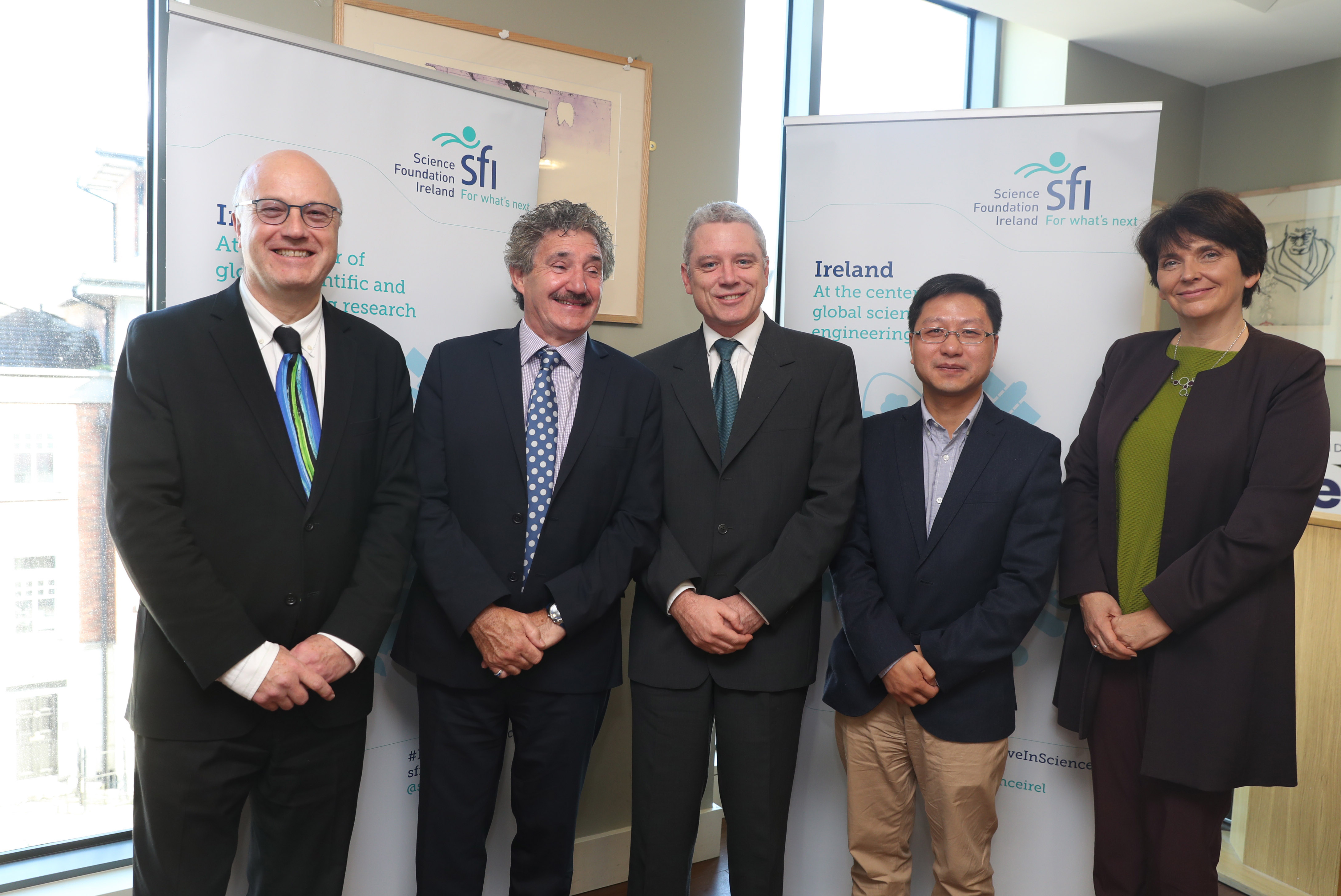SFI grants for UCD projects on nanoscience, cattle breeding, bowel disease and communications

Posted October 18, 2017
Research projects at University College Dublin on nanomaterials, cattle breeding, bowel disease and internet communications have received awards granted in the latest round of funding from Science Foundation Ireland’s Investigators Programme.
In total, (opens in a new window)Science Foundation Ireland has provided funding for 26 research projects that will support 94 research positions over the next five years.
The research projects will be funded through ten research bodies, as follows: University College Dublin (3), (opens in a new window)Dublin City University (2), (opens in a new window)Dublin Institute for Advanced Studies (1), (opens in a new window)National University of Ireland Galway (2),(opens in a new window) National University of Ireland Maynooth (2), (opens in a new window)Trinity College Dublin (9), (opens in a new window)University College Cork (3), (opens in a new window)University of Limerick (2), (opens in a new window)Teagasc (1) and (opens in a new window)Royal College of Surgeons Ireland (1).
Pictured above: Professor Mark Ferguson, Director General of Science Foundation Ireland and Chief Scientific Adviser to the Government of IrelandMinister for Training, Skills, Innovation, Research and Development, John Halligan TD, Professor Dermot Brougham, UCD School of Chemistry, Professor Anding Zhu, UCD School of Electrical and Electronic Engineering and Professor Orla Feely, UCD Vice-President for Research, Innovation and Impact at the announcement of the Investigators Programme awards
Along with the 26 research projects that will be funded, the international peer review panel recommended a further 33 scientifically excellent projects for funding. These projects are on a reserve list to be supported if budgets permit later in the year.
Minister for Training, Skills, Innovation, Research and Development, John Halligan TD announced the €43 million research investment through the SFI Investigators Programme.
“This funding recognises some of Ireland’s top researchers and enables them to advance vital research areas in Ireland including health, technology, agriculture and energy,” he said.
“I am confident that the teams being supported will generate important new scientific breakthroughs. In addition, today’s investment provides 20 companies with access to invaluable expertise and infrastructure across the country. These collaborations between industry and academia are integral to further enhancing Ireland’s reputation for research excellence.”
Professor Orla Feely, UCD Vice-President for Research, Innovation and Impact said: "Through this Programme UCD is building on our commitment to excellence in research and innovation in areas where we can deliver significant impact to the economy and society, both locally and globally.”
Professor Mark Ferguson, Director General of Science Foundation Ireland and Chief Scientific Adviser to the Government of Ireland said the SFI Investigators Programme funds outstanding individuals performing excellent, impactful research.
“The quality and quantity of excellent projects on the reserve list is clear evidence of the increasingly high standard of research in Ireland,” he said. “I have the highest expectations for the projects funded today, and look forward to seeing the benefits to Ireland’s society and economy.”
The UCD Principal Investigators whose research projects will receive funding include:
- Investigating the impact of Reactive Oxygen Species (ROS) on inflammatory bowel disease. The goal of the research is to improve patient care by understanding how changes in the oxidant/antioxidant balance will affect intestinal health.
PI: Prof Ulla Knaus, School of Medicine
- Developing digitally linearised high-efficiency millimetre wave power amplifiers for next-generation high-speed wireless 5G communications. This project aims to develop new technologies to enable high-speed wireless data transmission while at the meantime maintaining high quality of data services in 5G.
PI: Prof Anding Zhu, School of Electrical and Electronic Engineering
- Development of next-generation bio- and nano-compatible hydrogel supports for growing cells on plates that will deliver drugs and growth factors to cells at selected times, facilitating improved control over cell growth and response.
PI: Professor Dermot Brougham, School of Chemistry
- An integrated multidisciplinary approach to revolutionise dairy cattle breeding, through the application of state-of-the-art technology to advance the identification, sexual maturation, fertility and availability of semen from genetically elite sires.
* Joint project with Teagasc and University of Limerick, funded by Teagasc
PI at UCD: Professor Pat Lonergan, School of Agriculture and Food Science
By: Jamie Deasy, digital journalist, UCD University Relations






